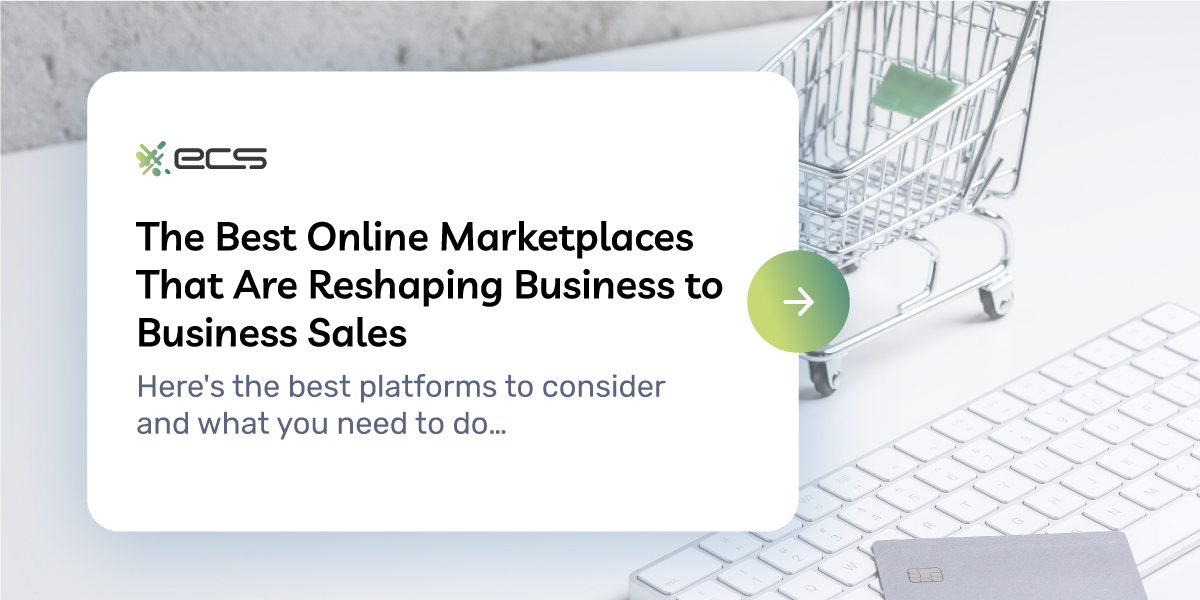Business to business (B2B) sales and markets are continuing to evolve to meet the needs of both business customers and the sellers providing them with products and services.
Online marketplaces allow a direct connection between businesses and their suppliers, reducing costs and expanding the variety of goods and services available.
Importantly, these marketplaces have expanded and cover more than just goods. Now, outsourcing and talent can be procured on online marketplaces just as easily as goods.
These marketplaces have created new and exciting opportunities for business on both sides. While it may seem like these online marketplaces have many benefits, and they do, some downsides exist.
Below, we’ll go over the critical aspects of online marketplaces for B2B sales. We’ll explain how they differ from business to consumer B2C online markets. Finally, we’ll discuss how they impact business relationships and what you need to do to fully take advantage of the trend.
What Is A Business to Business (B2B) Marketplace?
While most people know what a B2B marketplace is, beginning with a definition is essential. A B2B marketplace is an eCommerce platform facilitating trade among wholesale sellers and their business customers. B2B marketplaces act as trusted online intermediaries between buyers and sellers.
Business customers can use the marketplace to source goods. These goods can be entirely manufactured products, partially manufactured products, or raw materials needed for manufacturing. Beyond just products, B2B marketplaces also let you procure services your business needs.
The inherent transparency of a public online marketplace, where all customers can see all prices, helps regulate prices. This is much different compared to the older method of sales procurement, where businesses have no idea what their competitors may be paying.
Of course, as a buyer, you can still negotiate prices with a seller you find on a B2B marketplace. So, the prices are not 100% disclosed. However, there is much more transparency today than before online B2B marketplaces. This creates a situation where you can find a lower price to source your goods than you likely could in the past.
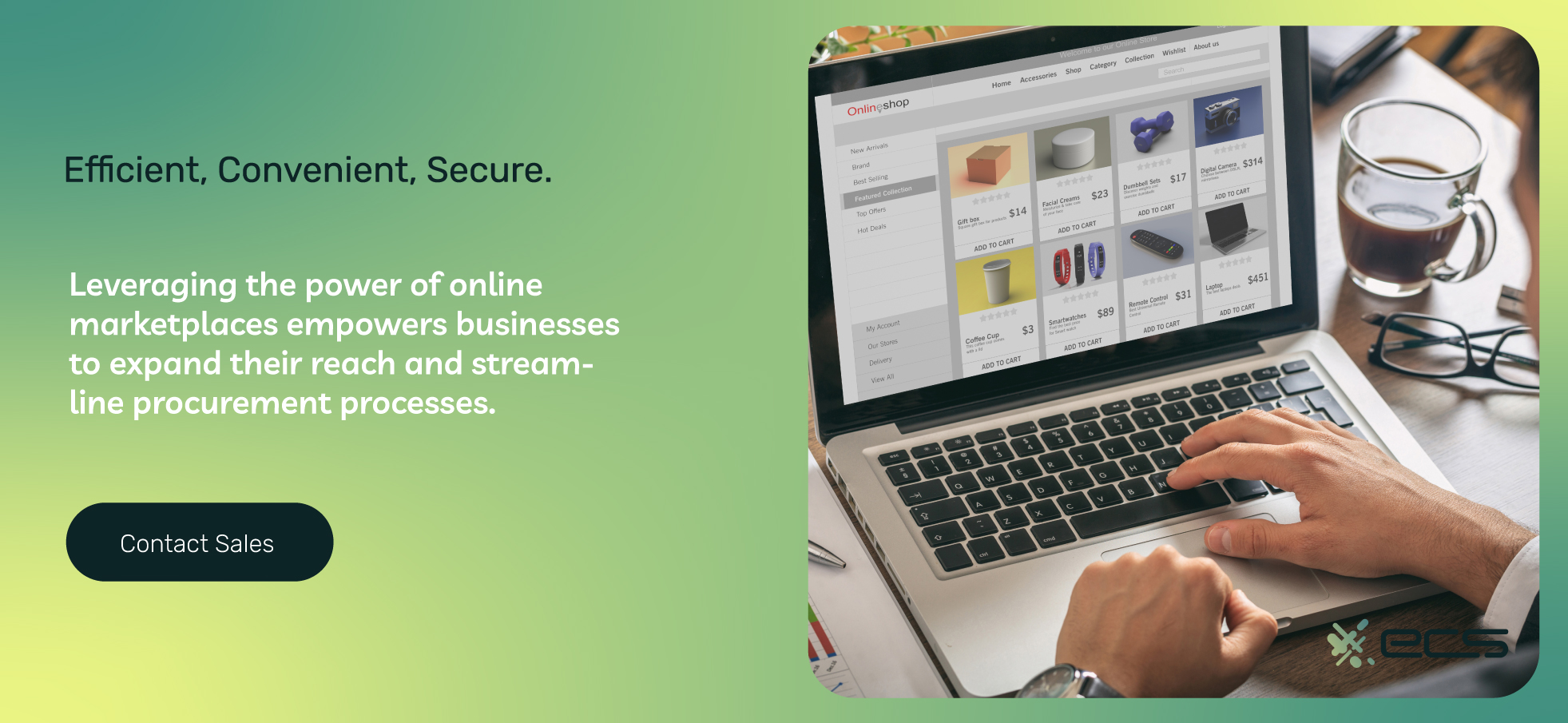
Business To Consumer Marketplaces
You’re likely already familiar with business-to-consumer (B2C) marketplaces that have become commonplace worldwide.
Sites like Amazon or Walmart Online are examples of popular B2C companies. Several B2C platforms also have separate B2B platforms for business customers.
For example, Amazon offers its Amazon Business platform, which is similar to its popular B2C platform but has tools designed for B2B buyers and sellers.
Benefits Of Business to Business (B2B) Marketplaces
Large businesses with hundreds of millions in sales use B2B marketplaces. Small businesses, which may only make a few small purchases a year, also use them. But whatever sized business you run, the benefits are the same.
Below are the main benefits that all businesses can enjoy when utilizing a B2B marketplace
Interact With A Larger Market
A B2B marketplace immediately opens access to a broader market that would otherwise be unavailable through a typical online store.
This benefits both buyers and sellers. As a buyer, you can find far more options and price points than you could previously. Not only that, you can save time and money by avoiding sales channels or speaking with representatives.
As a seller, you can now access buyers anywhere. Like buyers, you can reduce costs by spending fewer resources on sales outreach and lead prospecting.
Lower Advertising Costs
If you’re a seller, a B2B marketplace provides high-quality leads within your target audience.
Many B2B sellers may still opt for advertising for their business, but they experience a reduction in overall costs. It’s not uncommon, though, for sellers to not advertise at all when using a B2B marketplace.
But the lower advertising costs are not just a benefit to sellers. If you’re a buyer, you generally receive the benefit of the seller’s lower operating costs being passed on to you. Marketing expenses can be a significant portion of a seller’s budget.
Reducing those costs or even eliminating those costs provides a powerful pass-through discount to buyers.
Less Friction
Traditional B2B selling is not exactly streamlined. If you’re a buyer or a seller, you already know there can be many complications regarding traditional B2B sales. Invoicing, billing, negotiating rates, and even delivery can cause problems.
While a B2B marketplace doesn’t completely remove all friction, it dramatically reduces it for you. This improves the customer experience and repeat business for companies selling B2B products.
One key area of a B2B marketplace that reduces friction is that, as a buyer, you can manage many aspects of your purchases through a self-service portal. The B2B marketplace keeps track of your orders, payments, and deliveries.
If you’re a seller, you can similarly manage all your customers from one centralized portal. The platform automatically handles sending out confirmations and other repetitive tasks.
When using an online B2B marketplace to buy or sell, the platform fully automates many sales tasks, requiring minimal manual intervention for completing or managing sales.
There’s no need for B2B small businesses to build mobile apps or other infrastructure needed to sell products or services on their own.
Easier & Cheaper Product Launches
As a new B2B seller, getting your products off the ground can be difficult and expensive. Outside of trade shows or costly advertising, finding your place in a crowded market is tough.
B2B marketplaces drastically reduce the costs of entering a new market with a new product. Simply by adding your product to the marketplace, you immediately receive exposure. Interested customers see your product and can determine if it’s right for them.
This benefit isn’t just for new products, though. Sellers who have found a way to offer commodity-based products for less can also easily get exposure.
If you’ve created an innovative supply chain that allows you to sell a product for less, a B2B marketplace is a cost-effective way to gain market share.
Less Risk
One hurdle many sellers face when entering the B2B market is getting businesses to trust them. If you’re a business buying goods, you can’t risk a failed delivery or the products being defective or out of specifications.
Trust is a significant factor in sourcing B2B goods and services. Online B2B marketplaces make it easier for newer sellers to build trust. Most online B2B marketplaces have a specific vetting procedure that customers can rely on.
Besides basic vetting, most sellers have reviews or ratings that can show how satisfied other businesses have been with their service.
Many online marketplaces offer guarantees if a seller fails to deliver an order or the goods do not match the description. This provides you with further protection and lowers your overall risk.
This type of vetting and reviews can help your business decide on a new seller. Without the marketplace, you might hesitate to switch sellers on price alone.
Access To Powerful Analytics
In the past, a B2B seller had to use their own sales data to gain insight into market trends. Competitor information was often very difficult to come by. This lack of information made decision-making more difficult.
Today, online marketplaces offer extensive data on selling trends across the entire marketplace. If you’re a seller, accessing this information directly or using inexpensive third-party tools is relatively easy.
Data-driven decision-making has become the norm for top businesses. The analytics provided by online marketplaces makes it easy for smaller businesses to access this critical data.
Cybersecurity Protection
Cybersecurity threats are a top concern for virtually every business today. Online marketplaces help mitigate some of this risk by offering a highly secure centralized e-commerce platform that uses enterprise-grade security.
Smaller sellers can’t usually afford dedicated security specialists on their own. So, their website may not be the most secure.
But if those sellers use a trusted online marketplace that holds customer information and financial data for them, that seller now has enterprise-grade security.
This cybersecurity protects buyers and sellers on B2B marketplaces, adding to the overall trust.
Of course, no platform is entirely immune from data breaches. But the risks are lower when sellers use a trusted platform for handling their customer’s data.
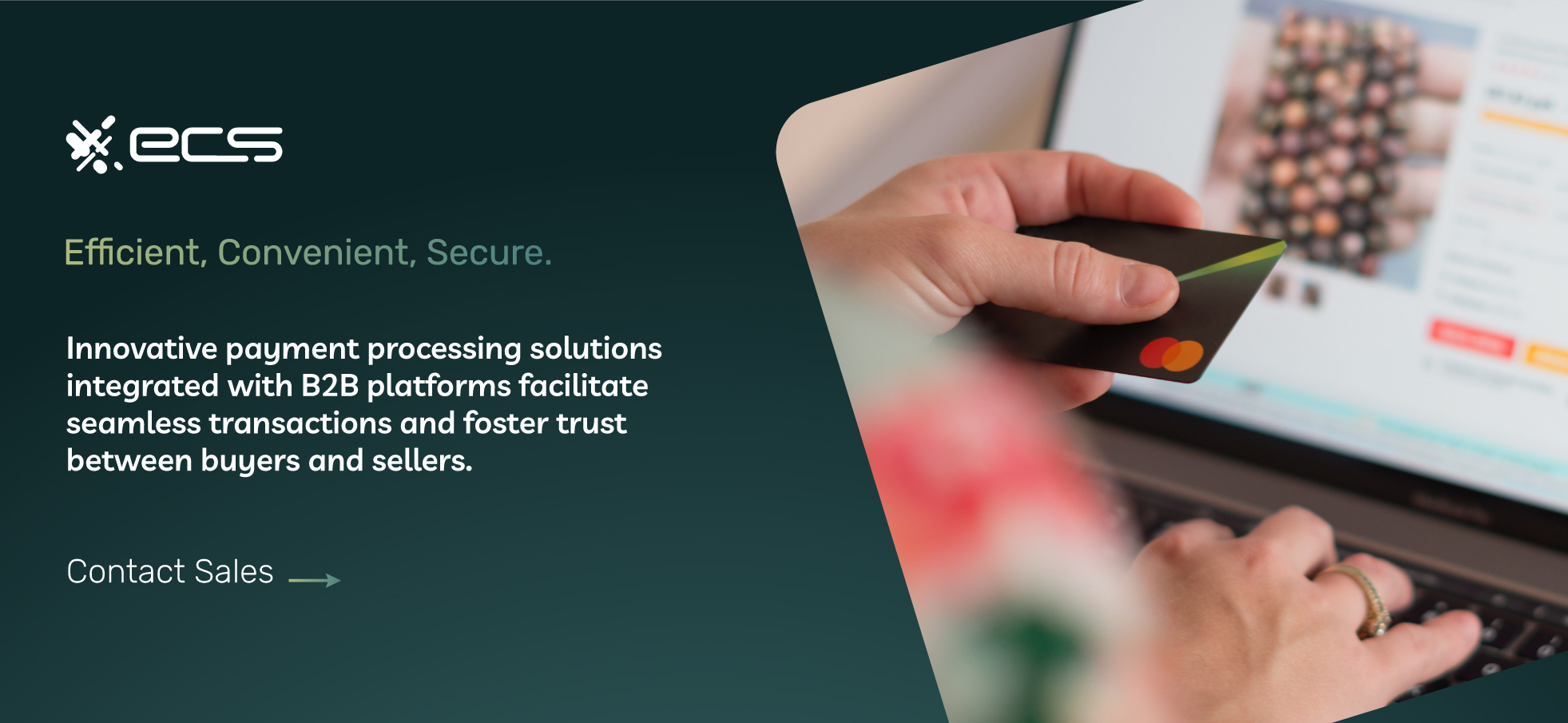
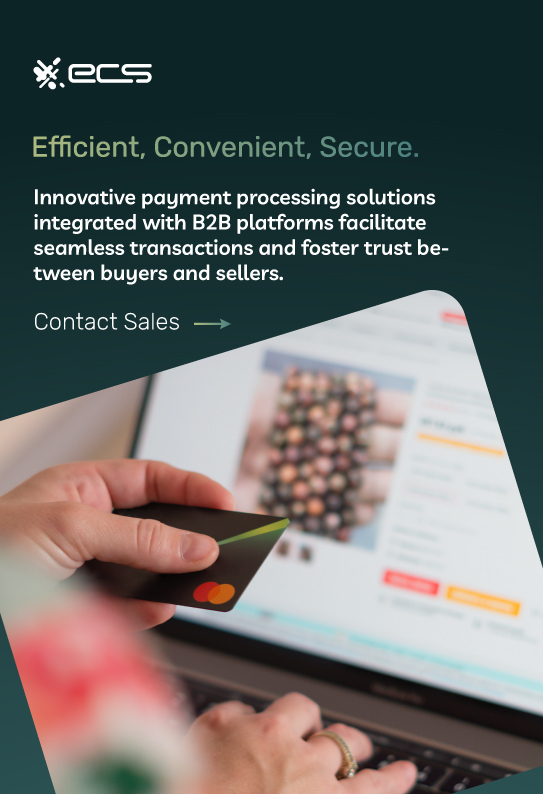
Risks Of Business to Business (B2B) Online Marketplaces
So far, we’ve touched on all the positives that online marketplaces have for buyers and sellers. But it’s not all good news. As with anything, online marketplaces have downsides as well. Some are minor, while others can disrupt many existing business models.
Below, we’ll cover the downsides of online marketplaces that you must be aware of.
Lack Of Control
When you do most of your selling on an online marketplace, you cede a lot of control to that marketplace.
For example, reviews are beneficial in some ways to help your brand build trust and attract new business. But this is a double-edged sword. A few bad reviews, especially if unfair, can damage your reputation, and you have no way to fight it.
Another area where you lose control is when it comes to branding your business. Every seller on a marketplace essentially has the same layout and branding options. This means you will appear like every other seller on the platform.
In a way, this does equal the playing field among sellers. However, it also diminishes your business and makes it harder for you to stand out via unique branding strategies.
If your business heavily relies on branding and unique marketing, an online marketplace may be too constraining for you.
Peer-to-peer and customer-to-customer selling often relies on a business’s ability to work directly with customers. This is more difficult when using a centralized B2B company.
Reliance On A Single Source Of Customers
In most markets, one large online marketplace takes a majority of the market share. Amazon and eBay are perfect examples of this.
If you’re a seller, this means you become reliant on a small number of marketplaces or possibly just a single one.
This creates a single point of failure for your business that is a substantial risk. If you have an issue with a large platform, you could find yourself without access to your most significant pool of customers.
If you’re a seller that uses online marketplaces as their primary source of leads, you must set up some type of diversification. You will also want a contingency in place should you lose access to the platform for whatever reason.
Race To The Bottom Pricing
We’ve already mentioned the lack of branding and control you have in an online marketplace. Most of the competition between sellers will rely solely on pricing.
For you as a seller, this means lower margins and the need to constantly keep up with new competitors entering the market looking to use penetration pricing strategies.
Because of the relatively low barrier to entry for online marketplaces, you will face a constant stream of new sellers hoping to undercut your prices and gain market share.
Even if these new sellers ultimately fail, it is still a constant negative pressure on pricing.
Difficult To Work With Your Customers
Online marketplaces have a lot of robust features to communicate with your customers. However, regarding special pricing or terms, online marketplaces are incredibly restrictive.
Some marketplaces prohibit sellers from receiving funds outside of the platform. As a seller, this restriction may benefit you in some ways, but it also involves being locked into the platform and subject to their fees.
If you want to offer one of your customers special terms, this type of restriction can lead to difficulty and even jeopardize your account.
Buyers on these platforms have to follow the same rules. So, these restrictions can make it harder for buyers and sellers to create custom agreements that serve them both.
Giving Up Your Sales Data
On one hand, using an online marketplace gives you access to significant sales data across the entire platform.
But there is a downside. The marketplace has access to all of your data as well. This means if you find a niche in the market, it won’t be long before competitors see it and easily duplicate your efforts.
Top Online Marketplaces For Business to Business (B2B)
There is no shortage of online marketplaces for B2B transactions. You can choose from large platforms that carry just about every product to niche platforms that cater to one industry.
To help you choose an online marketplace that may work for your business, we’ve compiled a list of the most popular platforms and their strengths.
Amazon Business
You likely have already used Amazon’s business-to-consumer platform, but they also have a B2P marketplace known as Amazon Business.
Amazon Business allows you to trade directly with suppliers on the platform. Being an Amazon product, it has all the features you would expect if you’re familiar with using the Amazon B2C platform.
In addition, Amazon Business adds unique features to help business buyers and sellers. The platform is highly competitive, but the number of buyers and sellers makes it a worthwhile platform to try.
Amazon Business fees can vary and include a per-item fee and a monthly fee.
Alibaba
Alibaba was one of the early mega-B2B platforms, and it’s still going strong today. With over a billion wholesale products, there is very little you can’t find on Alibaba. Online retail stores around the world use Alibaba to source their products.
Alibaba is particularly useful for those who want to access a worldwide market. Being one of the most extensive worldwide sellers, Alibaba can have a fairly complicated shipping system for those who are new to the system.
You must carefully track your orders and integrate your system with Alibaba to avoid any issues with returns or refunds.
For U.S. sellers, Alibaba offers annual fees starting at $1,999 per year. This includes zero commissions on sales and unlimited product listings. There is a per transaction fee of just under 3% for payment processing on all orders.
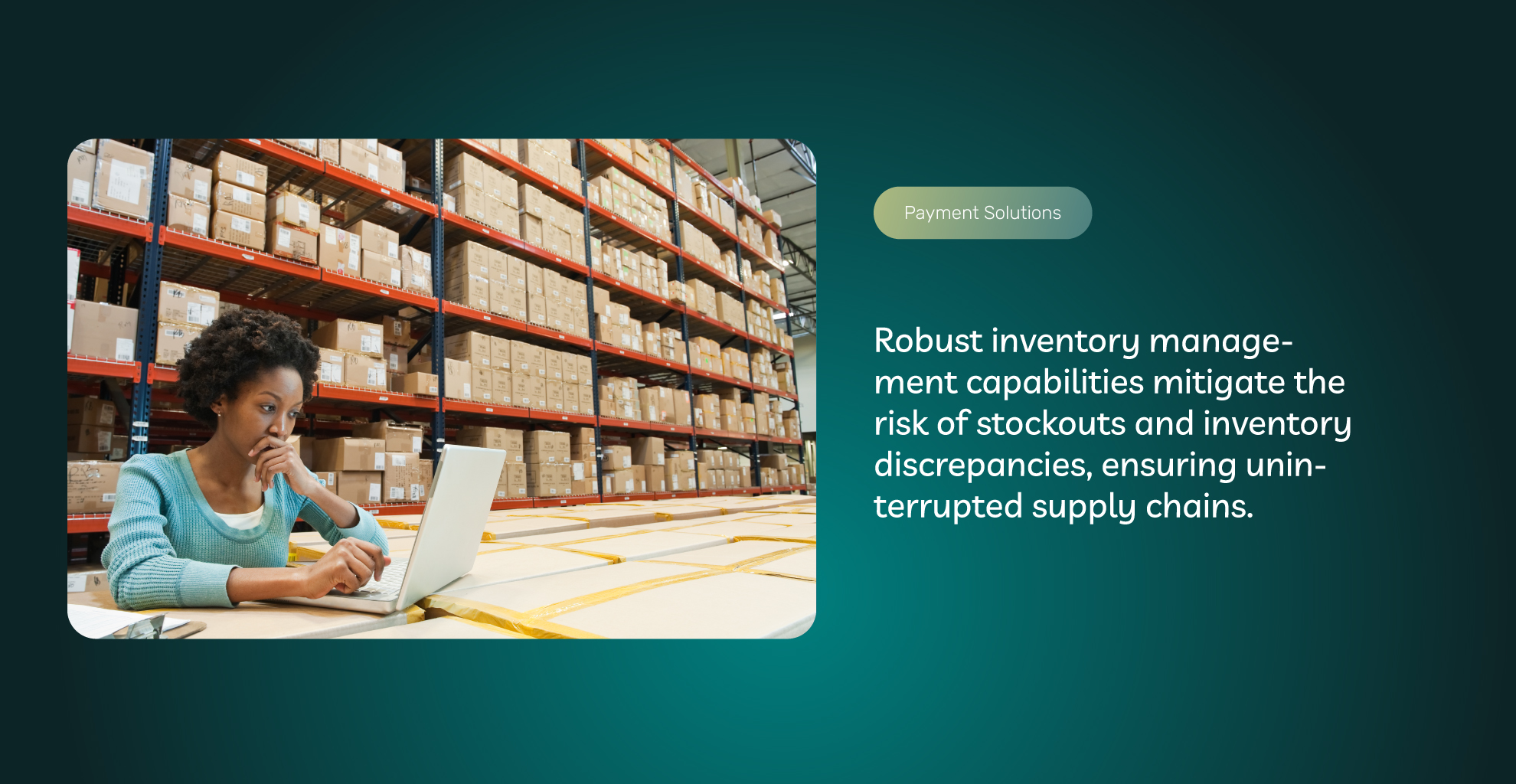
Droppe
Droppe is primarily used for the European market. It features over 100 manufacturers for various general products. Droppe uses a modern interface that allows for quick searches to help you find what you’re looking for.
You can also search via technical specifications regarding things like safety equipment or tools.
Droppe has no monthly fees and earns money via commissions on every sale. The commission structure can vary depending on your sales and other factors.
Tundra
Tundra allows independent and smaller retailers to access more prominent brands. Tundra uses one of the newer business models for marketplaces, which forgoes the fees usually charged to brands selling on the platform.
Instead, Tundra makes money via shipping charges and ad revenue generated by brands advertising to buyers on the platform.
Tundra focuses on providing access to more prominent brands and mainly carries general-purpose items and products.
Faire
Fair is a B2B marketplace focusing more on independent and unique products than big brands.
If you’re looking to source handpicked or curated items, Faire should be on your list of B2B marketplaces to check out.
If you’re a seller of unique items, Faire can be a great place to find customers if it’s hard to differentiate your product on the larger platforms.
Faire has been experiencing some growing pains. It’s a relatively new platform, and some sellers have complained about the fee structure, returns, and lack of control brands have.
Faire is addressing some of these issues, but it’s essential to be aware of them. A key takeaway is that many B2B platforms are new and may experience specific issues as they grow.
Ankorstore
Ankorstore boasts over 2 million products from a variety of sellers that are available at wholesale pricing.
Like Faire, Ankorstore focuses more on smaller boutique sellers offering somewhat unique products aimed at independent retailers.
Ankorstore charges a commission of 24% on the first order you receive through the platform. The commission then drops to 12% for all subsequent orders.
Anskorstore occasionally runs special promotions where new sellers can avoid commissions for a limited time.
Tradewheel
Tradewheel is unique in that it offers users a dedicated account manager. You can think of this account manager as a salesperson that helps buyers and sellers connect.
This unique approach bridges the gap between a totally self-service B2B marketplace and the more traditional way of handling B2B sales through personalized sales relationships.
Tradewheel operates as a type of freemium business model. You can join for free as a buyer or seller and have limited access to the platform. They also offer premium services for an annual fee to have additional features or an ad-free experience.
Novi
Novi is an innovative B2B platform that connects software developers to customers. The Novi platform specializes in enterprise software solutions, so don’t expect to find consumer software products here.
However, you can find teams to collaborate with on custom software applications and modifications to existing software they offer.
Novi is one of the smaller platforms, but it tries to service a niche often underserved in B2B markets.
Fashion United
Fashion United is another niche platform that focuses solely on the fashion industry. But despite being a niche platform, it’s rather large, with over 40K buyers currently on the platform.
New and existing fashion brands from around the world can find buyers on Fashion United. They also offer a unique service that assigns fashion experts to both buyers and sellers to help them connect with each other based on specific requirements.
Overall, Fashion United has become a hub of the B2B fashion world and helps to streamline the fashion buying process, which often needs lead times based on changing trends.
SeeBiz
SeeBiz is a medium-sized B2B platform offering over half a million products. SeeBiz goes beyond just connecting buyers and sellers and tries to also be a central networking hub for all things B2B.
In some ways, you can look at SeeBiz as a type of B2B social media platform on top of being a sales platform and eCommerce business.
SeeBiz vets and verifies all sellers before allowing them to sell on the platform.
SeeBiz has semi-annual plans as low as $600, and they will even create an introductory video for your brand and a custom storefront on the platform. This makes SeeBiz one of the more accessible B2B platforms for sellers to join.
Overall, Seebiz is an interesting concept and a great place to source the products you need, as well as network with various B2B insiders related to your industry.
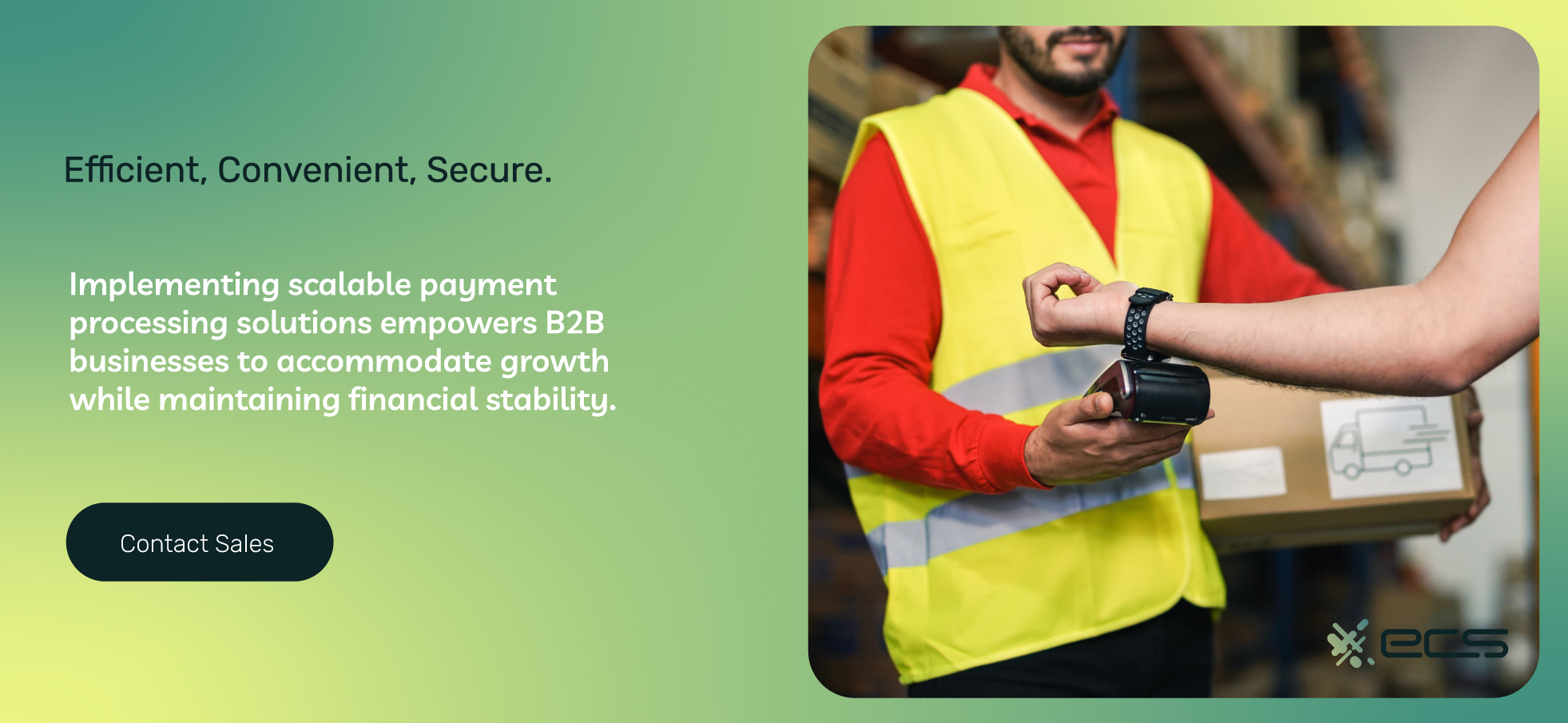
Tips To Get The Most From Business to Business Marketplaces
If you’re new to B2B marketplaces, we have compiled some tips to help you leverage them to the fullest.
1. Check For Fulfillment Options
As a seller, you’ll often want to use fulfillment options to store your inventory and ship your orders. This allows you to scale much more easily and keeps your costs under control as you build your business.
If the platform offers fulfillment, that can be an excellent reason for using a specific platform, especially if the rates and fees are competitive.
If you’re already using a third-party fulfillment service, ensure they are compatible with your chosen marketplace.
2. Product Information Management
If you’re selling a large amount of products across different platforms, you’ll want to use product information management (PIM) software.
PIM software allows you to manage all of your product listings across different platforms from a central location.
For smaller sellers, the built-in tools on most platforms will generally be enough to help you manage your different SKUs. However, larger sellers with many different products will want to incorporate a PIM software solution to streamline their operations.
3. Real-Time Inventory Tools
Online marketplaces operate 24/7 and allow you to sell products at any time. This is great for boosting revenue, but it also means you’ll need real-time inventory management to avoid running out of stock on certain items.
This is especially true if you’re using a third-party fulfillment service since there will be a lead time between sending a new product and making it available for purchase.
Real-time inventory management software integrated with your selling platform can keep you ahead of high-demand situations. You then have the proper amount of stock on hand locally or at your fulfillment location.
Business to Business (B2B) Markets And Payment Processing
Whether you’re a B2B buyer or seller, you require robust payment processing solutions.
Payment integrations have come a long way in recent years. These integrations can create significant efficiencies and cost savings within your business.
If you’re a B2B buyer or seller, contact ECS Payments to learn more about our B2B payment solutions.
ECS Payments offers the latest payment technology that can integrate seamlessly with your inventory and fulfillment management services.
These integrations can give you immediate cost savings and help you scale faster than you thought possible.
Contact ECS Payments to learn more about the latest B2B payment options specifically designed for the way you do business.
Frequently Asked Questions About Business to Business Marketplaces
Unlike B2C platforms like Amazon, a B2B marketplace is an eCommerce platform facilitating trade among wholesale sellers and businesses. The price transparency of B2B marketplaces also helps regulate costs compared to B2C platforms.
B2B marketplaces provide access to a larger market with more options and price points. Sellers have lower advertising costs, reduced sales friction, and easier product launches. The marketplace’s cybersecurity protection also enhances trust between buyers and sellers.
Risks of B2B marketplaces include a lack of control over branding and customer reviews, restrictions on communication and customization, dependence on a single source of customers, and a potential race-to-the-bottom pricing scenario.
Choosing the right B2B marketplace involves considering the specific strengths of each platform. Popular choices like Amazon Business, Alibaba, and others cater to specific needs. Businesses should evaluate fees, global reach, product variety, unique features, and industry niches.
